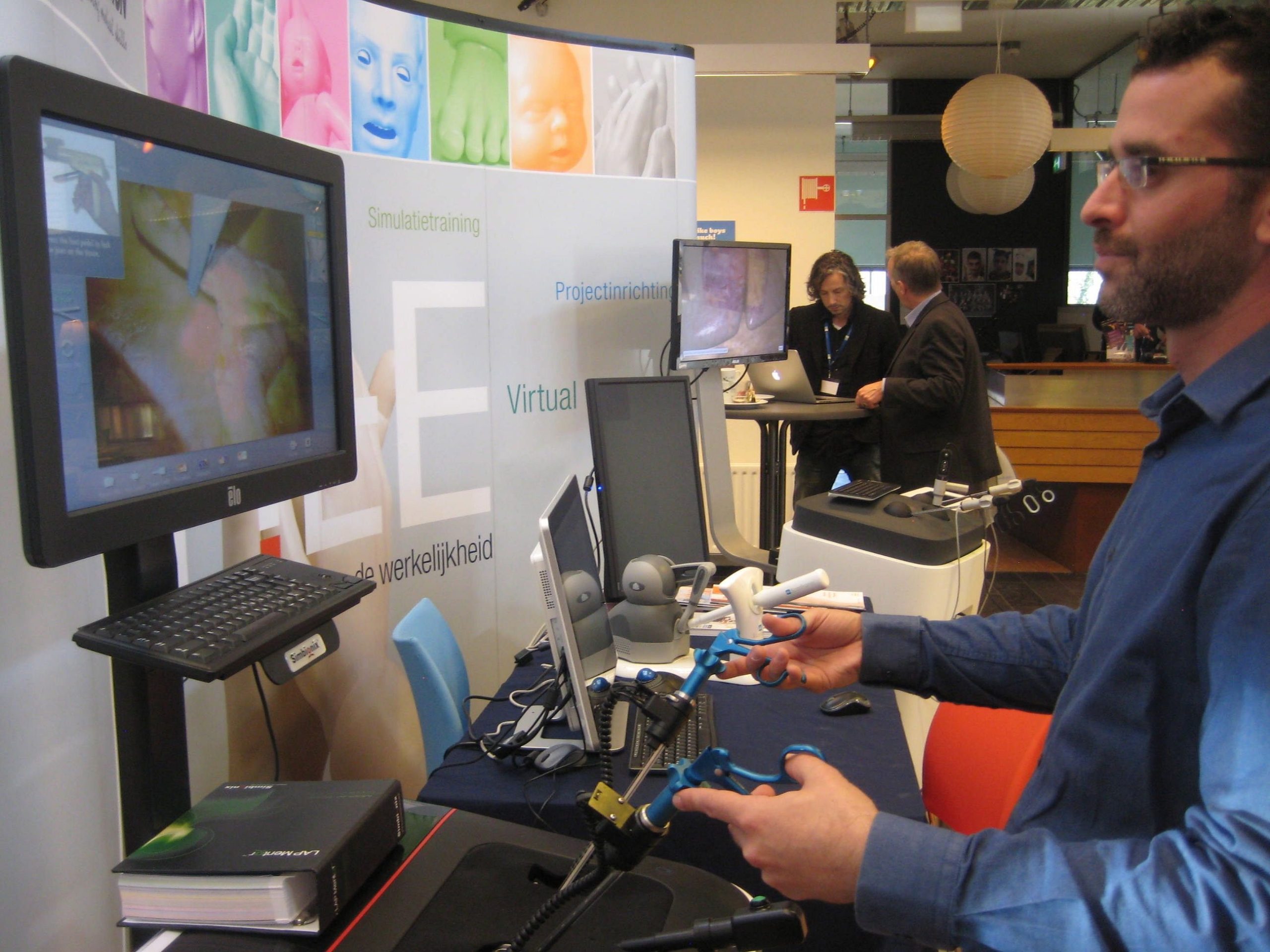Knowing how to remove an appendix is one thing: actually doing it is another, requiring skills that can only be gained through practical experience. But new Medical Simulation and Serious Gaming technology can replicate ‘real patients in real situations’ giving medics a much-needed extra opportunity to improve their practical skills.
‘Tough (T)issues in Medical Simulation’ was the theme of this year’s conference of the Dutch Society for Simulation in Healthcare (DSSH) held at TU Delft earlier this week. “Medical Simulation,” explained Congress President, Dr. Gabriëlle Tuijthof, “is any simulated environment that contributes to training of medical skills, mostly focussed on skills that can’t be learnt from books.” That can mean anything from how trauma care teams interact during emergencies to surgical skills to giving an injection or physical examination.
The conference brought together medical professionals with game developers, educational specialists, psychologists, and engineers – everyone with an interest in improving the practical side of medical training which, it seems, needs improvement. “We have evidence,” said Tuijthof, “that the first five to eight patients in an operating theatre with a new resident doctor are at risk because doctors often get their practical training on real patients. But if the doctor has already had simulated training, and achieved a basic level of motor skills, then the risks are reduced.”
The many technical developments on show at the congress included ‘fake patients’ that can ‘breathe’ so people can practice resuscitation. Two companies also showcased 3D simulators for training in keyhole surgery based on TU Delft research. In addition there was a ‘serious game’ worn on the healing wrist of a patient who can score points by steering either a shark or a penguin through a watery world by making the appropriate side-to-side or up-and-down movements, so exercising his wrist in a medically approved manner.
And the “Tough (T)issues” referred to in the theme? “That relates to tough tissues, like cartilage and bone, that are more difficult to manipulate,” explained Tuijthof. “It’s important to try and replicate the ‘feel’ of knee or shoulder surgery, for example, so that the simulation not only looks and moves realistically, but also feels real.”



Comments are closed.